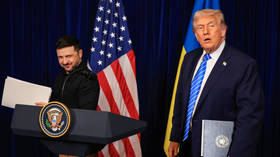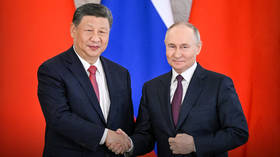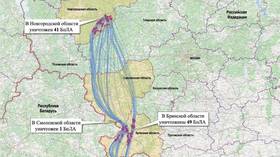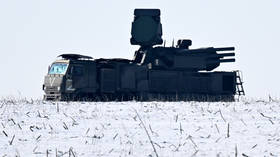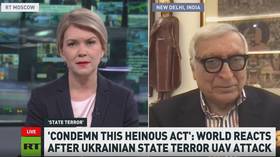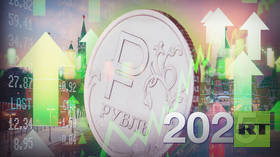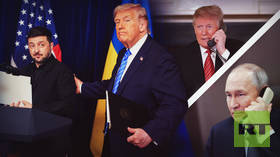‘BRICS Development Bank would shift the tectonic plates of geopolitics and geo-economics’
The BRICS Development Bank is the beginning of the end of the existing monetary management system, Asia Times correspondent Pepe Escobar told RT.
RT:There’s no doubt about it, these countries that
form the BRICS, they haven’t got a lot in common have they? They’ve
all got different styles of government indeed some of them are
economic rivals. Are they really a group to be taken
seriously?
Pepe Escobar: From now on yes, let’s say until this summit
in Durban, there was a lot of political talk of course and the
BRICS are basically an economic group in the making. Now it’s
different, now they have clear sound, actual policies to be
implemented.
This alternative to the World Bank and the IMF is absolutely
essential, this is the beginning of the end of the Bretton Woods
system and is to be supported by the next BRICS, the MIST, the
Mexico, Indonesia, South Korea and Turkey and the next MISTS as
well.
These are the tectonic plates of geopolitics and geo-economics,
they are changing, and it’s not Atlantasist anymore. It’s the
emergence, the re-emergence finally of the South. I’m reading a
fantastic book about that as we speak, I’m going to write about it
probably tomorrow, by Vijay Prashad and he explains in detail over
300 pages how the South has been completely undermined and attacked
in fact by the North, since the end of the Second World War and now
for the past few years at least with the best neo liberalism in
fact all over the place, failed policies. Now the South has started
to organize itself.
RT:Pepe, the way you’re talking here, about
geo-economics, it sounds as if we’re crossing the border into
geopolitics, is that really one of the main ambitions of this
group?
PE: As well. It’s not only geo-economics, its geopolitics as
well, because inside the BRICS we have for instance crucial
bilateral relationships. For instance, now China is the largest
trading partner of Brazil, of course there are clashes, but they
can resolve this inside the BRICS mechanism.
Russia and China is an extremely strategic partnership involving
special energy, no wonder Xi Jinping went to Russia just after he
was elected president in China and immediately afterwards he went
to Africa where the meeting is taking place, because South Africa
is one of the bridges for China to invest in the whole of the
African continent and the myth being spread by Western corporate
media that China is a neo-colonialist power is completely
ridiculous.
If you talk to African officials from many of these countries
involved, some even say that China has already invested in their
countries, and they have not extracted a single barrel of oil
yet.
The most important thing in fact that we should be talking about
all the time is the only argument that the Western elites have at
the moment vis-à-vis the BRICS and organization of the South’s or
they have a lot of resentment against the West. This is
ridiculous.
RT:Pepe, we are in global economic crisis at the moment,
so there is so much talk about these fast developing economies,
surely they’re going to be effected by the global economy crisis
and indeed their GDP is slowing down, some are experiencing
stagnant growth so is really the outlook that rosy?
PE: No, no, no, I’m not saying it is a rosy outlook. Brazil
is going to grow one percent this year. This is absurd, they were
growing between seven and eight. China, even if they decrease from
10 to 7.5-7.7 per cent, every 11.5 weeks China creates a Greek
economy inside China. If you put this in perspective, this is
enormous.
Of course, from the point of view of Western elites, the only thing
they care about is the salvation of capitalism, of financial
capitalism. They think that China is the salvation of capitalism.
Just like Deng Xiaoping fifty years ago, he was saying exactly the
opposite.
And now, it’s China saving the West, instead of the West saving
China. And there are discrepancies in terms of Russia and China as
well. But in the long term, there will be more integration among
the BRICS, among the other developing countries as well, especially
among the global South, and we’re talking about 150-160
countries.
The statements, views and opinions expressed in this column are solely those of the author and do not necessarily represent those of RT.
The statements, views and opinions expressed in this column are solely those of the author and do not necessarily represent those of RT.



